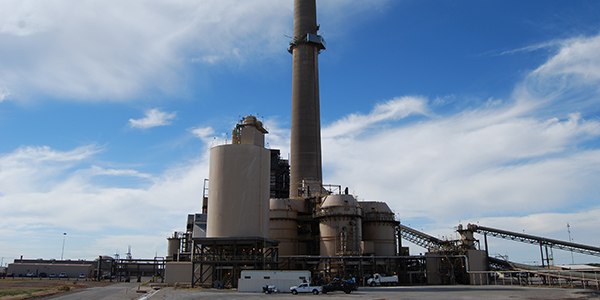By Tom Kleckner
Cheap energy from natural gas plants and renewables claimed another coal victim in Texas last week when American Electric Power announced it will close the Oklaunion Power Station near the Oklahoma border.
AEP, the plant’s operator and majority owner, said it plans to shut down Oklaunion by October 2020, citing concerns that the plant’s production costs are no longer competitive in ERCOT, company spokesman Stan Whiteford said.
The 32-year-old, 650-MW plant is split among four owners in both the ERCOT and SPP grids. AEP Texas owns a 54.69% interest in the plant. The other owners are the Brownsville Public Utilities Board (17.97%) in South Texas, AEP’s Public Service Company of Oklahoma subsidiary (15.62%) and the Oklahoma Municipal Power Authority (11.72%).
The plant accounts for 4.4% of ERCOT’s summer coal capacity. Its retirement will leave the grid operator with 24 operational coal units.
Two of those units, at CPS Energy’s J.T. Deely Power Plant, are currently mothballed and not included in ERCOT’s capacity calculations. The units date back to the late 1970s and have a combined capacity of 871 MW.
The San Antonio municipality notified ERCOT in 2013 it was closing Deely permanently by the end of 2018, partly to avoid spending as much as $550 million in environmental retrofits. CPS has said it remains committed to closing the plant, despite the Trump administration’s proposal the roll back the Clean Power Plan.
ERCOT spokeswoman Leslie Sopko said the grid operator has yet to receive an official notification of suspension of operations (NSO) regarding Oklaunion, and has not received an NSO for Deely’s permanent closure.
“AEP has advised us of their plans to close the plant,” Sopko said, noting the retirement will be reflected in ERCOT’s Capacity, Demand and Reserves report when it receives the NSO.
ERCOT lost 4 GW of coal-fired capacity last year when Vistra Energy closed three coal plants. (See Vistra Energy to Close 2 More Coal Plants.)
The grid operator still has more than 81 GW of capacity, though its reserve margin slipped to below 11% this year, following last year’s retirements. ERCOT survived record heat during July without any generation shortfalls or resorting to emergency measures.






